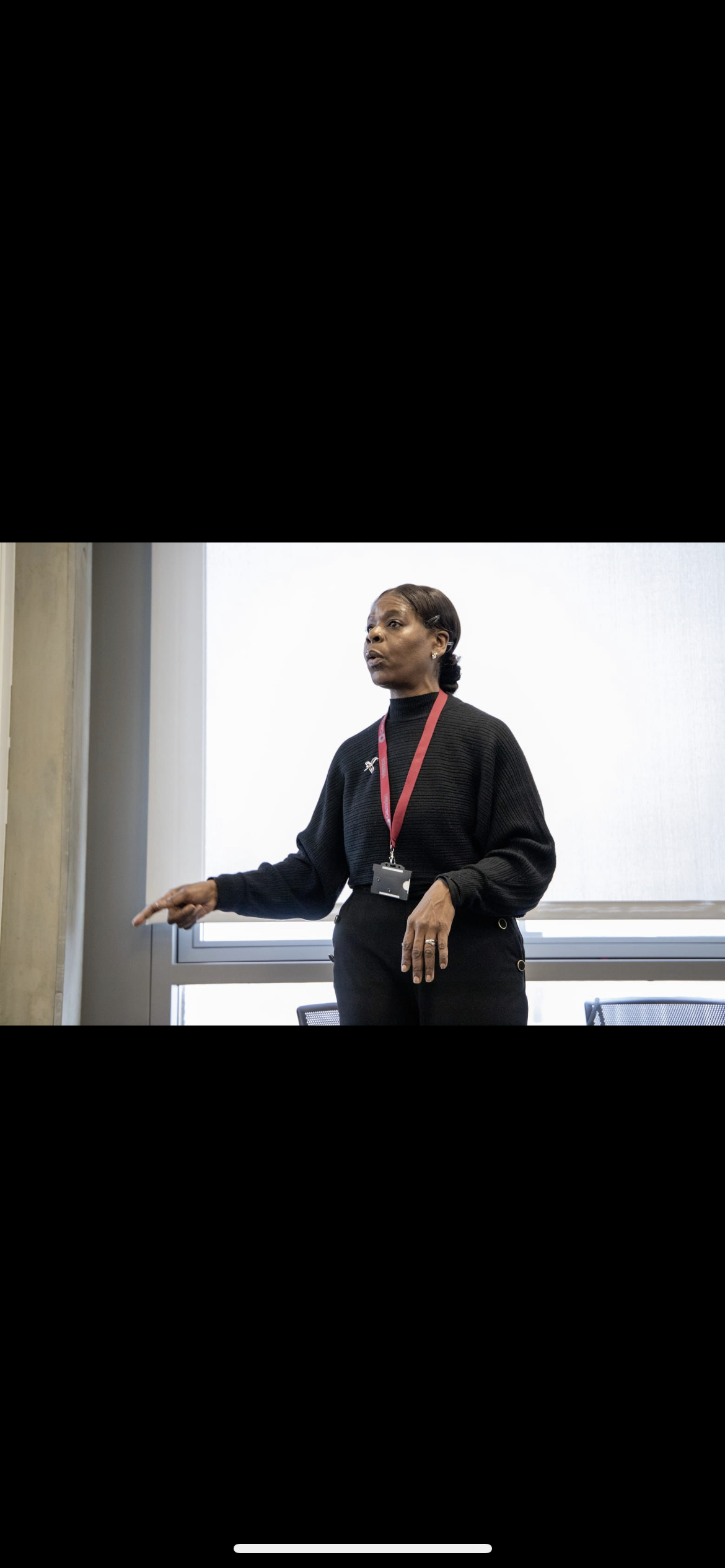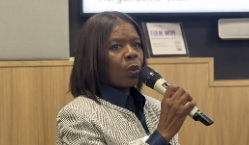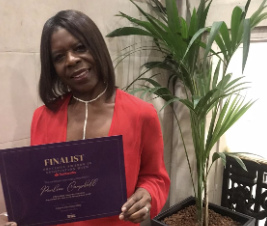Pauline Campbell:
“My life wasn’t going to be the same as my white friends, and that really hurt."

From seeing TV series Roots for the first time to racism in legal professions, Pauline Campbell discusses her resilient journey of overcoming racism and what Black History Month means to her.
“I don’t really believe black history,” said writer of Rice & Peas and Fish and Chips and award-winning lawyer Pauline Campbell, “I believe in history, but I don’t believe in just black history.” Initially, this statement threw me off completely. As a black person, how can you not believe in black history? What does she mean by simply not believing in it?
Pauline Campbell grew up in Hackney and painted a pleasant picture of her childhood. She described herself to be an “ordinary child”. The idea of racism did not occur to her as she had black and white friends. “I was just having fun as a child,” she says.
“I kind of knew we were different, but I never really took it on board when we were young. It was only when I got a bit older, in my teens, that I started to begin to have doubts about where I fitted in to everything.”

The “doubt” in question was sparked from the miniseries Roots which first aired in the UK in 1977. Roots depicted the story of Kunta Kinte, how the adolescent was captured, taken to North America and followed his life as a slave. “It was so traumatic to watch that series. That’s what gave me the first inkling of what enslavement was really like.”
As a young black person, Campbell started to see the difference between her and her white friends, with white people “telling us to go back to where we came from.”
“All those things started to make me realise and get a better awareness that I was different. My life wasn’t going to be the same as my white friends, and that really hurt. There was nothing I could do about it. Just because of the colour of my skin, I was going to be treated differently.”
When young Campbell was growing up, there was little-to-no black representation within the media industry. It was only until 1976, when ITV launched The Fosters, the first British sitcom to feature an all-black cast which led to that black representation increasing gradually within the industry. Career wise, there was little representation of a black person obtaining a white-collared job. “There were no young people that looked like me. I began to feel separated from the country I was born in.”
“In the eyes of the world, I would always be tainted by the stigmatisation of slavery and the racist ideals attached to it,” explained Campbell in her book Rice & Peas and Fish and Chips, “which meant that when I looked in the mirror as a thirteen year old girl, I didn’t like the dark brown reflection that stared back at me.” For years, Campbell was haunted by the harsh reality of her heritage and would continue to eat away at her.
“You are not A level material” is what 15 year old Campbell was told by her form teacher. Her father told her to not believe it, but “why wouldn’t I believe her?”
“How could my form teacher be wrong?” says Campbell in Rice & Peas and Fish and Chips, “I never saw any Black MPs, lawyers, doctors, or judges. My teacher's evaluation of me took hold.”
With no A levels, Campbell fell into doing office work when she left school. In her 20s, she found a job dealing with people’s housing benefits. “The more I did that job, the more complicated it became,” she says, “I realised there was a bit more to me than basic office work.”
“With time comes confidence” Campbell told me, and that’s exactly what happened in her case. Helping people, advocating on people’s behalf and drafting complex letters- she began to work on review boards and became a secretary for the black workers group with Islington council. Campbell knew she was good at what she did and gained her confidence. “In my 30s, I knew that there was more to me.”
So, in 1993 when Stephen Lawrence was murdered in a racist attack, “that was the icing on the cake for everything else that had happened,” she says.

The lack of black representation growing up, the New Cross massacre and the Brixton Riots created a snowball effect for Campbell. “All of this was happening around me,” she explains, “it hit me in my 30s that right, that’s enough! You’re more to yourself than this! That’s why I chose to do a law degree in my 30s- I knew I wanted more for myself.”
Trying to balance a 25-hour week job and a full time degree, at 41 she became a qualified solicitor. “My teacher was completely wrong,” she says in confidence, “I allowed my dreams to be stolen by somebody else.”
“Racism doesn’t end because of your professional job changes,” she says, “if anything, because I was a lawyer, I saw racism even more. I was working in a legal profession where racism is rife.”
So, Campbell began to write articles on racism and delved into anti-racism activism. Kicking off this new chapter of her life, Campbell published her book Rice & Peas and Fish and Chips in 2020. Her book explores what it means to be British as a first-generation immigrant child of Caribbean parents and examines race and racism. “I wanted the book to get the white community to understand how detrimental and traumatising racism can be,” she says, “because when racism hits you, you are alone.”
“You can be standing in a queue in a bank, on a bus, in your car and racism can hit you. That’s what I wanted the book to convey.”
Working for Waltham Forest council, Campbell is now an award-winning lawyer (winning the Litigation Team of the Year for Lawyers in Local Government in 2016) and has provided commentary and opinions for publications (such as the Law Society Gazette and the New Law journal). Since beginning her journey of becoming a lawyer, she actively engages in public speaking, where she addresses structural racism, equality and creating the workplace of tomorrow. More diversity in legal professions and bringing an end to racism is her ultimate goal.
“Black history is part of all British history, 365 days a year, 7 days a week,” she explains, “and when we celebrate black history month, it tells everybody in the country that we want them to look and listen to us.”
As a society, how can we create change and diminish racism? “I want people to want to start a conversation, and to want to be a part of understanding that change is necessary. Nothing changes if nothing changes,” she says. “To acknowledge that we need to talk about this problem- that’s got to be the starting point. Let's acknowledge that there is a problem and work together to try and find ways to fix and repair the damage.”
